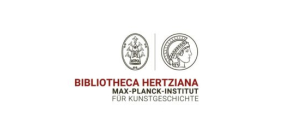Bibliotheca Hertziana - Max Planck Institute for Art History > Call for Papers: After the Middle Ages (Reception, Remnants, Revival): Architecture and Medievalism > Entro 31/03/2024
28/03/2024
“After the Middle Ages” implies both a temporal horizon, extending from the early modern period to the present day and beyond, and responses to the Middle Ages (medievalism). The conference aims to navigate and shine a spotlight on the historical interactions between these responses and architecture, encompassing attitudes towards the medieval built environment, remnants of the Middle Ages, and practices of reception and revival.
Response to the past does not naturally serve as an epistemic point of departure for architectural history. The discipline’s methods lean towards comprehending the pre-existing, often idealised as a coveted “original”, to which subsequent reactions are directed. Since the formalisation of medievalism studies in the 1970s, there has been a notable surge in scholarly attention across various disciplines directed towards responses to the Middle Ages. Medievalism is conspicuously under-theorised within architectural history. Yet, it thoroughly permeates and persistently molds the field’s subject matter, alongside responses to Antiquity. In turn, within the interdisciplinary realm of medievalism studies, architectural history remains relatively underrepresented, garnering less attention in comparison to disciplines such as medieval history and literature. The conference hopes to address these gaps and foster critical discussions surrounding an “architectural history of medievalism”.
An architectural history of medievalism presents the conundrum of grappling with responses to the Middle Ages while diverting emphasis away from the historical medieval era. By taking the medieval as a lens of refraction through which to delve into the post-medieval, this subject matter demands comprehensive acceptance of its variety, complexity, and contradictions. Acknowledging tensions and uncomfortable friction with classicism, alongside intimate connections to broader histories and historiographies, it deals with three central aspects.
- Reception: An inherent aspect of an architectural history of medievalism involves how the medieval has been received within architectural theory and historiography. This encompasses diverse perspectives such as critical or eulogistic views towards its visual idioms and material culture. Drawing on the interrelation between architectural historicity and Giorgio Vasari’s reaction to the Gothic suggests that responses to the Middle Ages are positioned at the foundational core of architectural history as a discipline. Simultaneously, reception extends to how medieval architecture has been received in related fields, such as the visual arts or literature.
- Remnants: Another aspect concerns the afterlives and loss of the medieval built environment in the post-medieval. Interest often centres on its “original” state. An architectural history of medievalism delves into exploring responses to the architecture from the Middle Ages. This exploration acknowledges the built environment’s diachronic nature and comprises dynamic modes of interaction, like preservation, restoration, reworking, and, at its most extreme, annihilation. It also involves practices of medieval survival, continuing enterprises in the post-medieval which follow patterns ascribable to the Middle Ages.
- Revival: Last but not least, an architectural history of medievalism scrutinises neo-medievalism, the architectural manifestation of medievalism. This represents the architectural revival of the Middle Ages, including, for instance, the post-medieval embodiment of medieval visual idioms like the Gothic Revival, forms of orientalism, as well as medievalities manifested through Modernism and Postmodernism. Neo-medievalism, whether built or unrealised, enduring or temporary (including the ephemeral), extant or lost, illustrates architecture’s distinct capacity to imbue spatial qualities into the resurgence of the medieval.
By elevating facets that have long been undervalued, this conference aims to challenge prevailing biases associated with medievalism: the critical assessment of reception along a spectrum based on its understanding of the actual Middle Ages; the prioritisation of the medieval built environment in its pre-modern state, alongside condemning implications of post-medieval interventions that impact the “original”; and the perception that the medieval holds greater historical significance than the neo-medieval.
Applications to present a paper in English or Italian are welcomed. Submissions may examine any aspect of an architectural history of medievalism, spanning from reception and remnants of the medieval to its revival, encompassing any geography and time. What are the stakes, modes, and attitudes surrounding the entanglements of architecture and medievalism, historically, theoretically, and historiographically? What responsibilities does architectural history bear in advancing knowledge on responses to the Middle Ages, including their topical resurgence and interaction with the great challenges of our time, within its domain and in relation to other disciplines?
To apply, please submit an abstract of a maximum of 350 words, along with your CV (including any potential affiliation) on the following platform by 31 March 2024: https://recruitment.biblhertz.it. Accommodation and travel reimbursement will be available for speakers.
Le Attualità: ProfilCultura
- 18/12/2025 - ReA! Arte > CreA! Corso per i Futuri Curatori dell’arte: Un progetto a cura di ReA! Art Fair Il primo corso pratico per curatori a Milano
- 04/12/2025 - Fondazione Friends of Florence - Salone dell’Arte e del Restauro di Firenze > VIII edizione Premio Friends of Florence per la tutela del patrimonio artistico e culturale di Firenze > Entro 04/03/2026
- 23/12/2024 - MEIS Museo Nazionale dell’Ebraismo Italiano e della Shoah > Indagine di mercato per l’affidamento del servizio di realizzazione di un piano di comunicazione strategica 2025-2028 > Entro 20/01/2025
- 22/10/2024 - Kaleidos - Comune di Meda > Festival Immedesimarsi: spettacoli di teatro, musica e danza per giovani artisti > Entro 05/11/2024
- 21/10/2024 - Cesmar7 > Workshop - La movimentazione delle opere d'arte > Entro 25/11/2024
- 21/10/2024 - Teatro Pubblico Ligure - Associazione ATeatro ETS > Bando per compagnie teatrali > Entro 04/11/2024
- 18/10/2024 - Comune di Castel del Giudice > Concorso di fotografia: "ImmaginARTI: cantieri di (ri)generazione" > Entro 15/11/2024
- 17/10/2024 - Associazione Settimo Cielo > Bando di residenza "Portraits on stage 2024" > Entro 10/11/2024
- 16/10/2024 - Fondazione Studio Marangoni > Mastering Photography - Ultimi posti disponibili
- 16/10/2024 - LuceLabCinecittà - Accademia Teatro alla Scala > Corso professionalizzante per attrezzisti e macchinisti > Entro 04/11/2024
 IT
IT
 FR
FR











